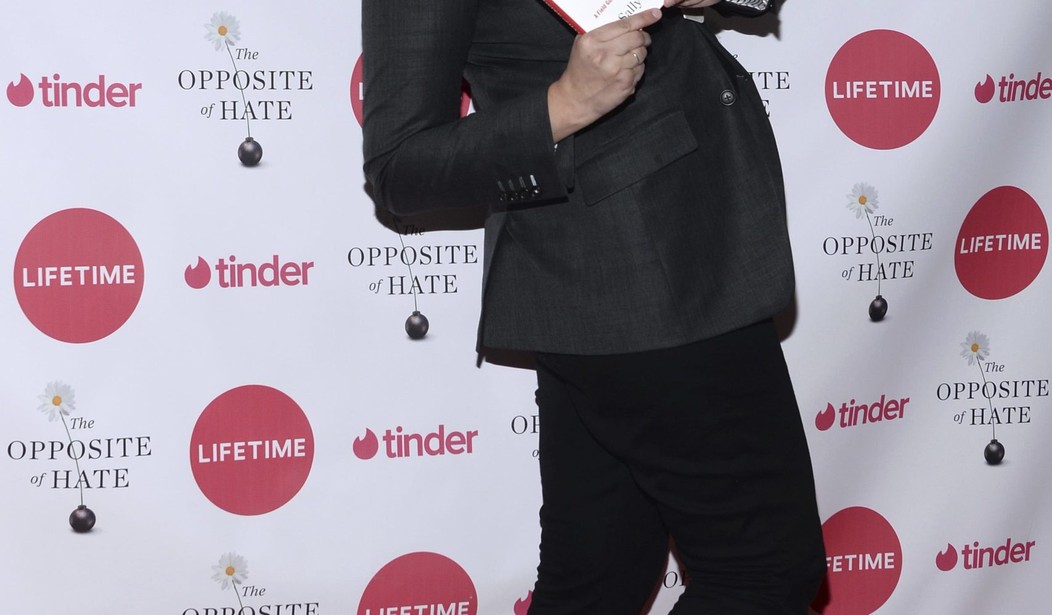WASHINGTON – CNN commentator Sally Kohn explained how her experience working at Fox News turned out to be the opposite of what she had expected and how it influenced her new book, The Opposite of Hate: A Field Guide to Repairing Our Humanity.
“I thought of myself as a pretty kind, decent person and was reared to think of myself that way. And my early years as a community organizer, that was my idea of myself. And then I went to go work at Fox News as a lefty lesbian – by the way, I’m a lesbian; I hope that didn’t shock anyone, you’ve also read the Internet, you know – so when I showed up at Fox News, listen, I thought they had some hateful ideas, supported some hateful policies, right, but also I expected everyone on air, off air, people watching at home, I expected them to be like totalistically and completely a hundred percent hateful monsters, I just did,” Kohn said during a recent discussion with former CNN anchor Candy Crowley at Georgetown University.
“And that sounds horrible to say but it’s just what I expected. I thought they’d just be mean to me, they wouldn’t care about me, they’d be homophobic, right, I expected all hate – and when I went to go actually spend time at Fox News, two things happened,” she added. “I found out that these people – who I still think, by the way, believe and support a lot of hateful things in the world – were quite nice to me as a person, just interpersonally they weren’t what I expected and cared about my career and cared about my family and sometimes we could even find things to agree on. And we’re complex people who were more than just those political views and I realized I hated them.”
She continued, “Here I was thinking I was this like holier-than-thou champion of kindness and fighter of hate and I realized how much hate I walked in there with – all the stereotypes and preconceived notions and judgments, and that led me to want to understand how and why we hate because I wanted to fix it in myself. I didn’t like that part of myself.”
Kohn detailed the rationale behind her decision to continue going on Fox News host Sean Hannity’s radio show.
“I’m pretty super aware that I’m white, pretty super aware that I have a media platform. I’m pretty super aware that I can talk to conservatives in a way that a lot of people don’t feel safe and comfortable and, you know, I’m pretty aware of my economic privilege and right. And I realize that I can have these conversations, in a way, because of who I am and the spaces I occupy in the world, in a way that feels, that I feel safe doing so and I feel like that’s something that those of us who can should take, should shoulder that burden. Sometimes we’ll do it imperfectly … I know a lot of people who aren’t going to go on Sean Hannity’s radio show, like I do, still,” she said.
“I don’t go on Sean Hannity’s radio show because I think I’m ever going to change Sean’s mind – I know I’m not – but because I want to talk to the people who are listening to him who are not monoliths, who are not just one thing, who are not just the person they voted for in 2016,” she added. “And also, by the way, does anyone remember in 2012 when Sean Hannity said he was going to support a path to citizenship for undocumented immigrants, and started talking about how these are hardworking people who are part of this country? So I’d rather him do that than keep spewing hate, and I am going to take it on as part of my piece of the puzzle, my work to try to have those conversations.”
Kohn described the way her feelings toward hate changed after the 2016 election.
“All the stuff I thought I’d gotten better with in terms of hating, in particular sort of a partisan version of it started coming back for me in the 2016 election and the immediate aftermath, thinking some pretty horrible things about half the country and some pretty endemic things about half the country. And in spite of the fact, by the way, that like I’m one of the people who said, like, this was the natural conclusion of our politics for the last 50 years and the way that the Democratic Party but particularly the Republican Party has relied on a politics of fear and dog-whistle racism and fomented racial resentment and hatred, and that this was going to happen,” she said.
“I still was like, those are some hateful people, like they are nothing but hateful, never will be anything but hateful. And I would go to dinner parties in my little liberal bubble, because I live in a liberal bubble, and my liberal bubble friends would sit around outraged and say things like, ‘oh, those Trump voters, they are so Islamophobia and anti-immigrant and racist and they’re so hateful and I hate them.’ I realized, first of all, these are some people I knew and who were not just that – no one is just who they voted for in 2016, just like no one is just who they voted for in 2008,” she added.
Kohn continued, “I also realized that I want them to vote differently next time and I want them to change. I don’t want them to always be Islamophobic. I don’t want them to always be anti-immigrant and I know if I tell people that they are hateful and if I hate them, guess what? They will dig in their heels, they will never listen to me and that’s what they will always be.”
Crowley asked Kohn if there are any comparatives to this time in America.
“I actually don’t think it matters, like, it doesn’t have to be the most hateful time in history for it to be bad enough. We have to do something about it,” Kohn replied. “I don’t think this is the most hateful time in our history. I mean, again, in spite of our rhetorical aspirations and professed principles, as a country we have a pretty strong history of hate, right, the nation was founded when we wiped out – Civil War – we wiped out the native population. The country was built on slavery. We stage, after stage, after stage have tried to deny rights to group, after group, after group. We have a profound history of hate in this country that is still with us.”
“What I think feels different about this moment is the media and the 24/7, 360 dynamic of the media and the media’s investment in conflict to get eyeballs and also social media and the way that both – we all now feel surrounded and kind of constantly bombarded by hate and we can all participate in it more easily than ever,” the pundit added. “You know, regular folks like you would sit on your couch at home and maybe you’d say something hateful about some person or some group and it would just kind of stay between you. And now you can tap it out on your Twitter or whatever and it spreads.”
In response, Crowley said, “It’s almost like the Internet was invented, you know, all this is going to bring us all together and it’s, like, tearing us all apart in ways. I mean, it is full of contradictions – as is most of life – but it’s like this great thing that you think, I wish had never been invented.”









Join the conversation as a VIP Member